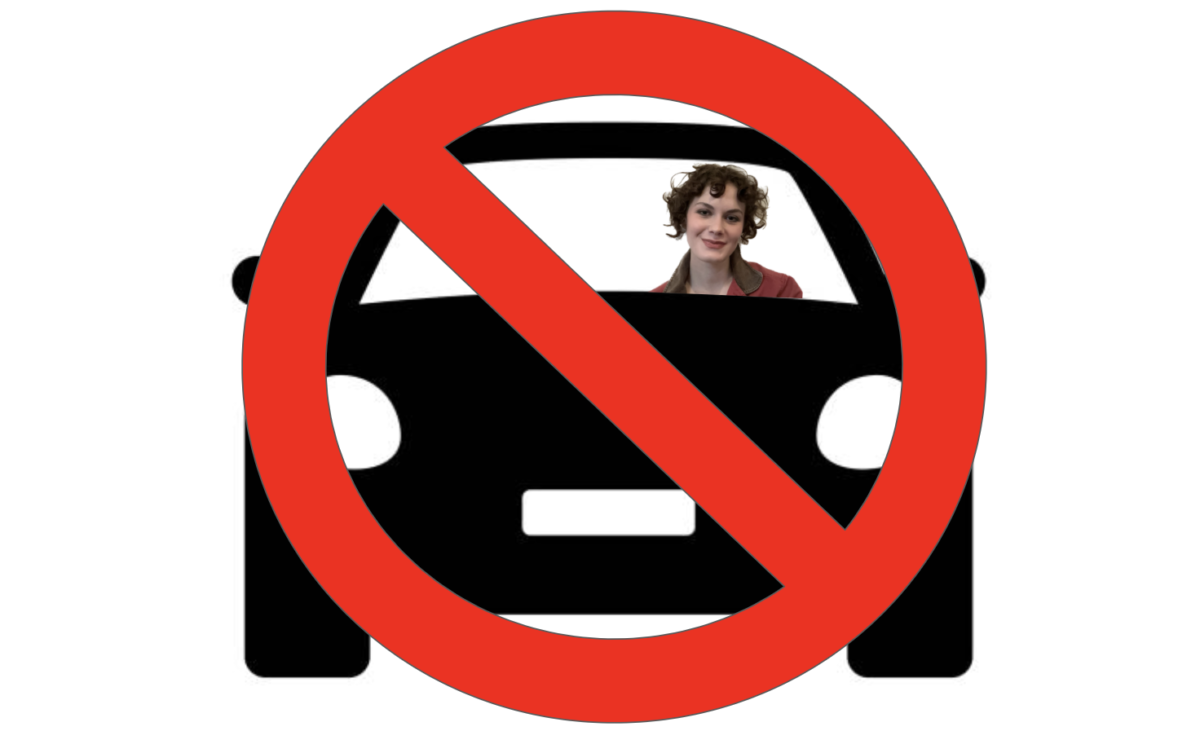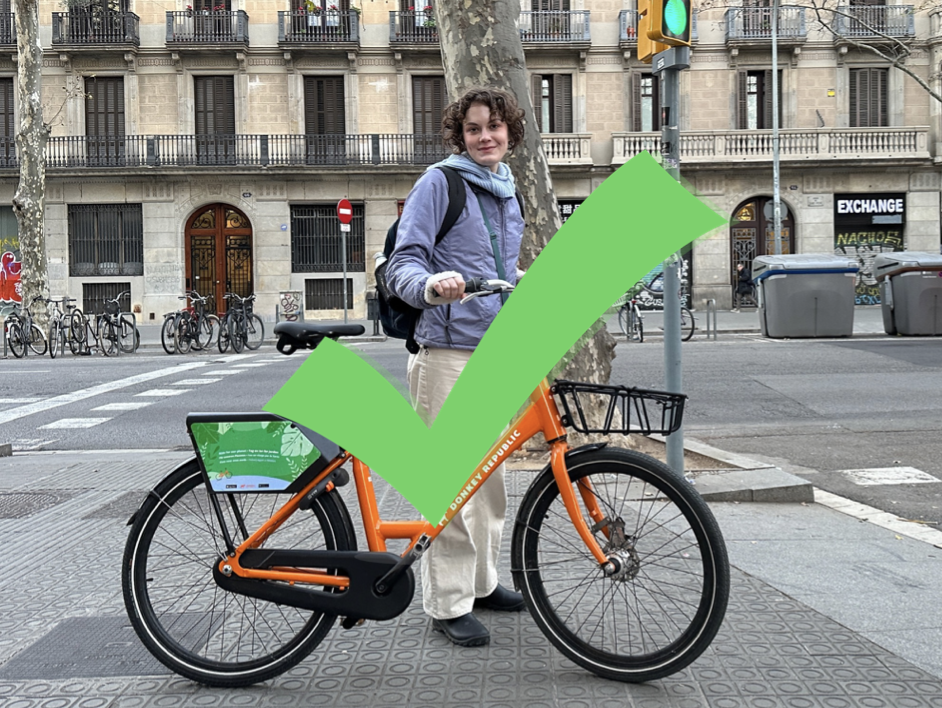

The actual anniversary came and went unnoticed, but I just realized that it’s now been over a year since I dropped my car off at a dealership, handed over the keys, title and registration and began my carfree life. This doesn’t really feel like a momentous occasion to me, but perhaps that nonchalance is all the more reason I should do some reflecting. So…what have I learned this year?
First, a bit of background. While I was always active on my bike as a form of transportation and leisure starting from a young age, I will honestly say I had some pretty big blinders on when it came to my own car use up until pretty recently. It’s remarkable — and pretty embarrassing — to me that I used to drive so casually, even as I was extremely worried about the climate crisis and thought I was being fairly responsible. Car dependency just wasn’t something I noticed. (I guess my story shows how much people can change in a short period of time.)
If I try to trace back my journey to enlightenment about car culture, I think I can point to a few waves of realization. One of the first one of these came about when I was working on a story about parking at the University of Oregon (UO) for the Eugene Weekly newspaper — my first-ever foray into transportation reporting. My initial angle for this story came from the perspective of disgruntled students and staff who were tired of paying exorbitant parking fees on campus. But I thought it might also be interesting to find out what some transportation faculty had to say about the situation.
I will always remember my conversation with Marc Schlossberg, the notable professor of city and regional planning at UO who very kindly schooled me on parking and transportation policy and changed my life forever. I still have the notes from our conversation on my computer —here are a few pertinent quotes I jotted down, my mouth agape as a new world unfolded before me:
“The existence of so much parking makes it impossible for other options to be viable…a city where walking, biking or transit is most convenient and comfortable and having ubiquitous parking everywhere are mutually exclusive realities…the UO campus is the first experience a lot of people have in an environment where they can’t find a parking space, and it’s always a real shock. If we’re really interested in issues of social justice, cohesion, economic equality, climate change, public health crisis around car crashes, we have to do something.”
I am astounded looking at these notes — how did I not know this stuff? His call to action was very inspiring to me. Through my reporting, I started to become interested in other aspects of infrastructure, and followed a bunch of city planning people on Twitter. Finally I embarked on my first carfree experiment in March 2021, when I was still living in Eugene. My goal was to stop driving for a month. It was a lot easier than I thought it would be, and I realized then that I wanted to fundamentally restructure my life so I could live carfree. From then on, it was only a matter of time.
After the intense climate despair I felt during and after the heat dome event in the summer of 2021 and my move to Portland a few months later, I was completely done with car ownership. Biking was my main form of transportation by that point anyway, and I felt a pit of guilt in my stomach every time I started the engine of my car.
The main reason I didn’t sell it sooner than February of last year is because I was procrastinating dealing with the logistics (cleaning it out, finding the paperwork, choosing where to sell it). But I was a little scared, too. What if I needed it? I knew there was no way I could feel good about driving my own car ever again, however, no matter the possible downsides that I feared might up later. Like Shannon Johnson asked in her great Family Biking column this week, “how does your mode of transportation…align with your values and priorities?” For me, driving a car didn’t. (I was also tired of throwing away money on insurance every month for a vehicle I never used.)
So I sold it! And I can say with 100% certainty that there hasn’t been a single moment of regret all year.
The big takeaway I want to tell people is that even though I don’t drive and the majority of my peers do, my life is pretty much…unremarkable. Obviously, my job is particularly well-suited to getting around on other modes of transportation, so I have a leg up there. But I do a lot of other things, too. I see my friends who live in different neighborhoods across the city, buy too much stuff at Trader Joe’s by accident, move houses…and I’ve been able to do all of that by bike, no problem.
Of course, I’m not saying that it’s always easy: people who don’t drive face a structural disadvantage when it comes to getting around Portland, and that needs to change. But one of the most troubling things to me has been experiencing people making the assumption that the things I have to do are less important than the things they have to do because I ride my bike or walk to get there, and they use a big, heavy machine. Compared to a lot of problems people face, this is a small one, but it’s a bit annoying.
When I tell people I don’t drive, I often find myself cutting their potential defensive comments off at the pass before they’ve even said anything. (I’ve even done it in this article.) I’ve heard these arguments enough times to know it’s easier to just have some justifying remarks ready right off the bat. I might say things like, “I’m lucky because I have the privilege to not need to drive a car…a lot of people aren’t so lucky,” or “We live in a car-dependent society, nobody should be shamed for driving. It’s the structures we need to change, not the individual.”
To some extent, these things are true. I don’t think shame is the best influencing tool. But my goal for the next phase of my carfree life is to stop making so much of those justifications. There are a lot of people who have the same advantages as I do who couldn’t be bothered to think about their car use — I would know, because it wasn’t very long ago that I was one of those people. If we’re ever going to get anywhere with our transportation and climate goals, this has to change.
So, I’m happy I’ve been carfree for a year, and it’s certainly been great for me in a lot of ways: I save a lot of money, I get much more exercise and while I still feel constant climate dread, I don’t feel nearly as much cognitive dissonance, which has been enormously helpful. But I’m not asking for kudos. A lot of people have never had their own car because they can’t afford it or are physically unable to drive one. I live a pretty normal — even exciting! — life, just without a car. Believe it or not, it is possible.



